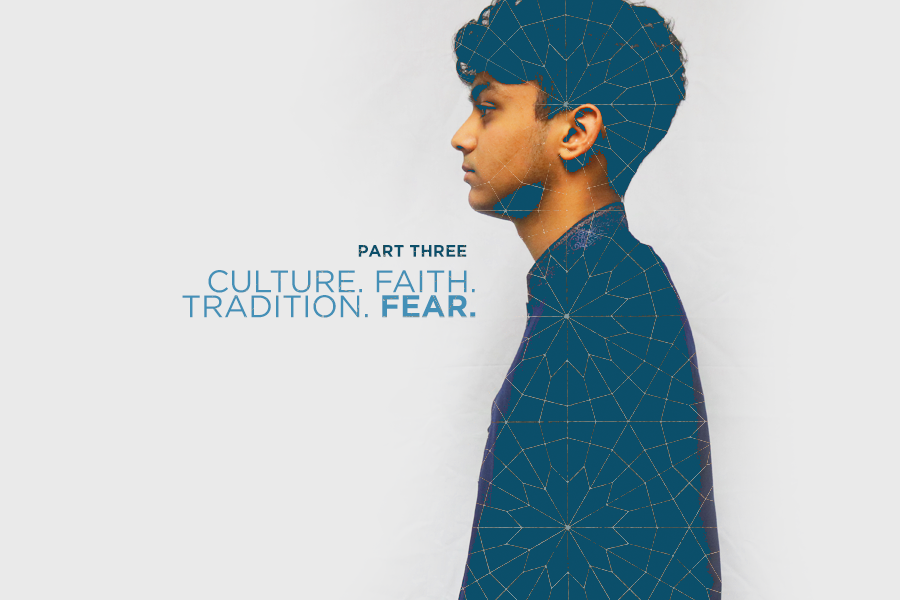Standing in the wake of devastation (Part 3)
How young American Muslims straddle cultural divides, balance lifestyles
April 8, 2019
CHS senior Farris Ali does not pray five times a day, as is traditionally custom, but he does visit the Irving Islamic Center every Friday and strives to pray at least once or twice daily. He practices Ramadan, but doesn’t adhere to the belief that drinking or sex before marriage is wrong.
“My parents were born in Pakistan, in an environment where everyone was Muslim,” Ali said. “But for me, it’s a mix of traditional and western lifestyle.”
As Ali puts it, living in the U.S. means there are ‘things you’re drawn to’.
“In Islam, you’re not supposed to drink or have sex before marriage,” Ali said. “In America, though, those things are just there. People are more drawn to those activities. You kind of forget about your religion here, compared to if you were in one of those Islamic countries.”
The world is smaller than ever, and Ali, who is the first of his family to be born and raised in the U.S., faces one of the most profound effects of this twenty-first century phenomenon.
As globalization brings the world’s myriad of cultures closer together, many first and second-generation Americans find themselves falling between cultural checkboxes and straddling hemispheres. Particularly in the West, where materialism is perceived to encourage vanity in American youth culture, “forgetting” your roots, as Ali puts it, can be unavoidable.
This balancing act of assimilation and holding onto one’s heritage, already challenging to navigate, can be further intensified when the heritage that is being held onto is facing global backlash and prejudice.
“Our kids are growing up with a very distorted image of Islamic Muslims right now,” Issa said. “It’s no longer ‘cool’ to be Muslim. They don’t have the same understanding of their identity as their parents do.”
The media is one beast – the real-life prejudice and stereotyping Muslim Americans face on a day-to-day basis is another entirely.
“People will make jokes, like they’ll shout ‘Allahu Akbar’, or things related to terrorism and explosives,” Ali said. “It sort of bothers me, but people will always be like this. It happens on the daily, and this is the world we live in.”
For some Muslim Americans, it is common to keep quiet about the subject matter as a whole.
“Most people don’t know I’m Muslim,” CHS senior Neha Lalani said. “I don’t go around publicizing it, and physically, it’s not out there – but if you ask me, I’ll tell you.”
Neha and her sister, CHS graduate Sana Lalani, are Shia Ismaili Muslims. Ismailism is a distinctive sect of Islam characterized by modernized interpretations of the Quran and more ‘lax’ practices. Women are not required to wear hijabs, and contrary to traditional Muslim practices, dressing moderately and praying separately from men is not necessary.
“We’ve taken in teachings based on society today,” Sana said. “For example, you can now marry a non-Muslim according to our doctrine. Before, you couldn’t even take [non-Muslims] into the mosque. Our religion adapts according to changes in the world.”
The “modernized” nature of their religion simultaneously sets the Lalani sisters apart from stereotypical depictions of Muslims and allows them to blend in with the rest of western society.
However, this ability to remain religiously incognito doesn’t mean they are intentionally hiding. In spite of the rhetoric they have grown up hearing about Muslims – and indirectly, about themselves – shame and guilt, they emphasize, have no place in their relationship with Islam.
For Sana, her religious community provides not only a source of spiritual guidance, but long-lasting relationships and a point of instant connection.
“All of my childhood friends whom I grew up with and still talk to to this day, I met through the Ismaili Center that we’ve attended since birth,” Sana said.
Neha, agrees, additionally citing faith as a cultural anchor for families who have immigrated to the U.S.
“We all either came from India or Pakistan, so our parents are usually friends,” Neha said. “The values we hold are all the same. When you go through high school, your friends change when you join different cliques, but with my friends from the Ismaili Center, they’ve been constant.”
Community is a significant aspect of Islam – something in direct contrast with American ideals of radical individualism.
For the VRIC, nurturing a strong sense of unity among Muslims in the area is crucial toward combating the distorted portrayals of their own faith by western media and the public.
“The more a community is woven together, the stronger we all are,” Armstrong said.
That being said, staying together does not mean staying away from the rest of the the world. Rather, it means taking the best out of both Western and Islamic culture.
“We want our children to maintain healthy family values and moral, religious principles from their culture, tradition and faith,” Issa said. “But they’re also Americans, they were born here. There no doubt about that.”
For younger generations of Muslim Americans, Issa explains, it is less of a matter of picking between cultures, and more about moving forward in American society while still retaining pride in their faith.
It is a matter of rising above what the media has to say about their culture.
“The diversity of the country is what makes it strong, what makes it unique,” Issa said. “As we all are moving into American society, we’re trying to give our youth the best of what they came with as they move forward in this country.”
